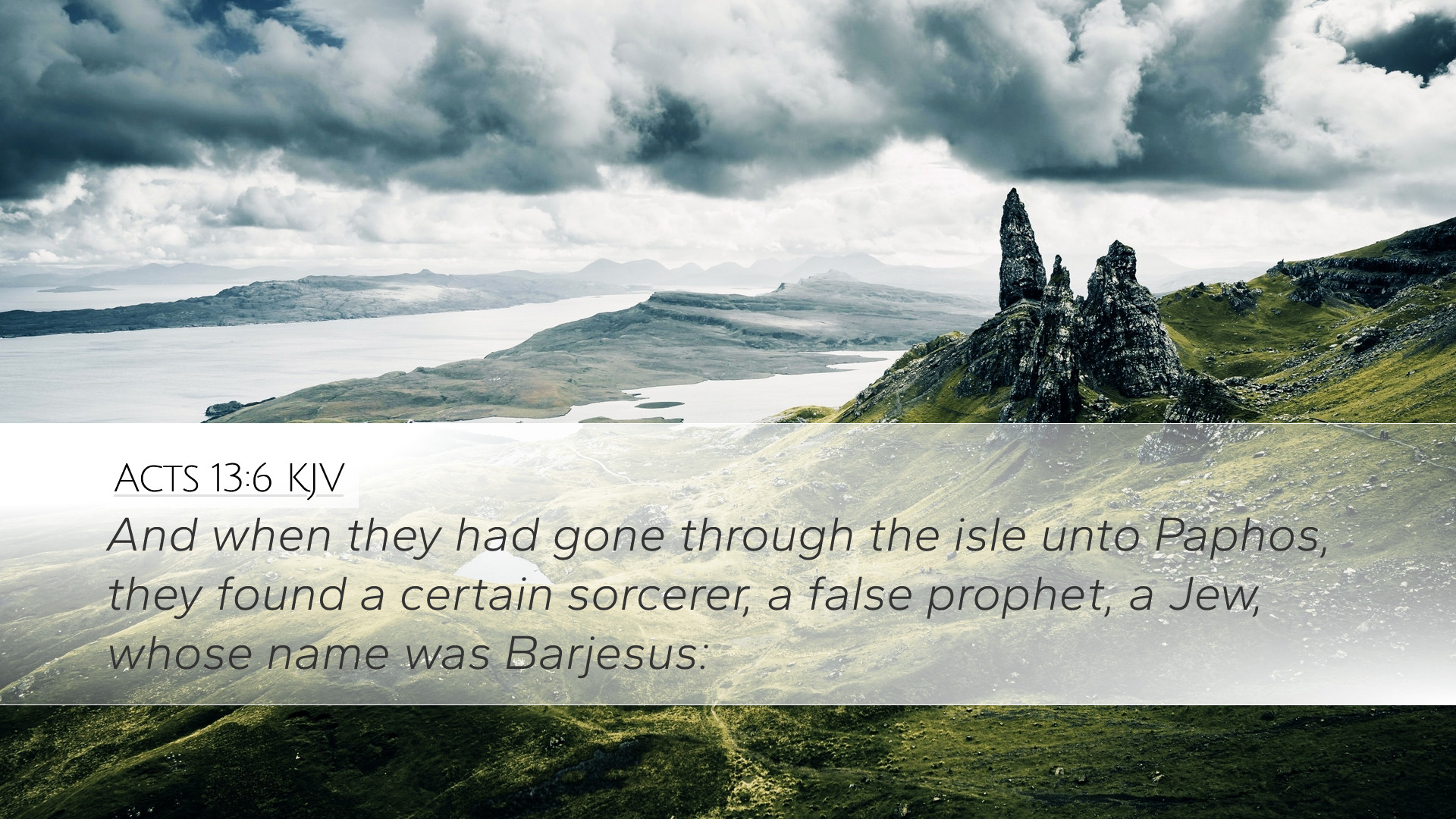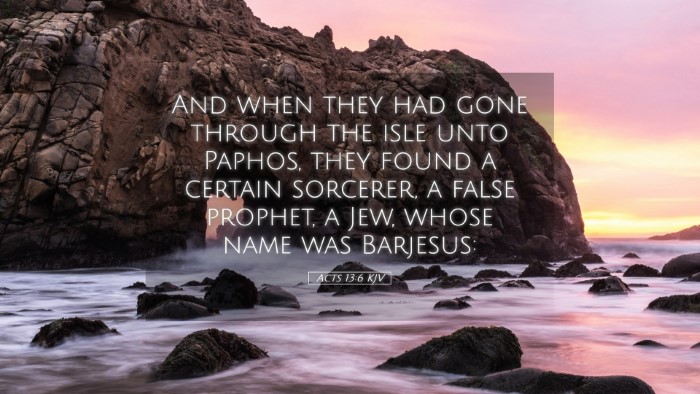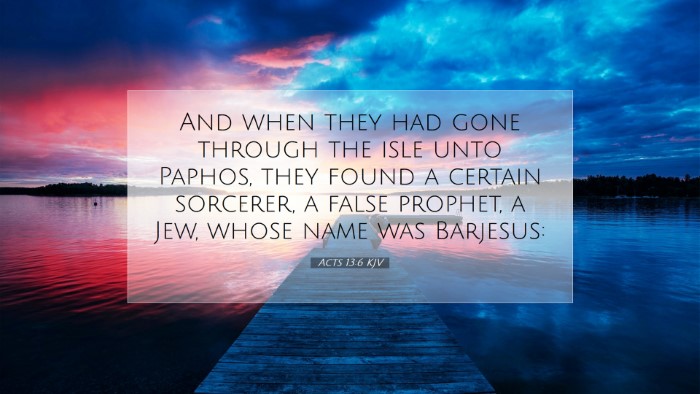Commentary on Acts 13:6
Acts 13:6 states: "And when they had gone through the isle unto Paphos, they found a certain sorcerer, a false prophet, a Jew, whose name was Barjesus:" This verse is pivotal as it introduces the ministry of Paul and Barnabas in Cyprus, marking their first significant encounter with demonic opposition as they spread the gospel. The insights derived from various public domain commentaries provide a rich tapestry of understanding regarding this event.
Contextual Background
The historical setting of Acts 13 reflects a burgeoning movement of the early church. Paul and Barnabas are leaving Antioch with the specific intention to spread the Gospel to the Gentiles. This missionary journey is significant for many reasons, particularly the emphasis on reaching non-Jewish audiences and the challenges they faced from both spiritual and secular authorities.
The Isle of Cyprus
Cyprus holds strategic importance in this narrative. It is a larger island that hosts a mixture of cultures, including Jewish and Gentile populations. Commentators often highlight that the choice of Cyprus for the first leg of their missionary journey was likely influenced by Barnabas's heritage as a Cypriot Jew (Acts 4:36). This connection underscores the importance of personal ties in ministry and outreach.
The Encounter with Barjesus
Barjesus is described as a "sorcerer" and a "false prophet." This terminology is critical, as it conveys the nature of his opposition to the truth being proclaimed by Paul and Barnabas. Each term holds significant implications for the nature of spiritual warfare that the apostles encountered.
Sorcery and Deception
- Sorcery: The term implies an engagement with magical or occult practices. According to Matthew Henry, this illustrates the darkness that surrounds the proclamation of the light of the Gospel. Sorcery is not merely a relic of ancient cultures but presents a real opposition to the mission of God.
- False Prophet: Albert Barnes notes that Barjesus is not solely a practitioner of sorcery but also a deceiver who misleads people in spiritual matters. This highlights a crucial characteristic of false teachers—they often mingle truth with deception, leading many astray.
- Jewish Identity: The identification of Barjesus as a Jew speaks to the complexities of faith within the Jewish community. Adam Clarke emphasizes that Barjesus’s heritage does not shield him from deception and rebellion against God’s purpose.
Theological Implications
The encounter signifies more than just a clash of wills; it brings to light fundamental theological themes. The opposition faced by Paul and Barnabas mirrors the conflict between truth and falsehood. This rejection of the Gospel has implications for understanding the nature of spiritual resistance in evangelistic endeavors.
Spiritual Warfare
- Resistance to the Gospel: This passage illustrates the pervasive nature of spiritual opposition. Just as Paul and Barnabas are moved by the Spirit to preach, so too is Barjesus motivated by the spirit of rebellion to obstruct this mission (Henry).
- The Response of Apostles: The boldness exhibited by Paul serves as a model for contemporary witness; he confronts falsehood with truth. Barnes elaborates on the authority Paul possessed as an apostle to challenge and expose this deception.
- The Power of God: Ultimately, this narrative foreshadows the power and victory of God’s truth over evil. The conflict intensifies but also serves to affirm the supremacy of Christ’s message.
Application for Today
Pastors and theologians should consider the implications of this passage for current ministry contexts. The challenges posed by false teachings, skepticism, and spiritual opposition are as relevant today as they were in the time of Paul and Barnabas. Therefore, the call is to remain rooted in the truth of the Gospel while being vigilant against any form of deception.
Ministry Challenges
- Dealing with Falsehood: In church leadership and teaching, discernment must be exercised in identifying and addressing false teachings. Clarke advises that great care should be taken to ensure that believers are not led astray.
- Engagement with Culture: As the early church engaged with different cultures, churches today are called to interact meaningfully with societal issues while adhering to the tenets of the faith.
- Empowerment through Prayer: Just as the apostles were led by the Spirit, today’s leaders should seek divine guidance through prayer and reliance on the Holy Spirit for boldness and wisdom in confronting challenges.
Conclusion
The narrative of Acts 13:6 encapsulates a vital moment in the early church's history, emphasizing the clash between light and darkness, truth and deception. The study of Barjesus serves not only as a historical account but also as a warning and teaching tool for contemporary believers. In facing opposition, may we remember the faithful example of the apostles and the unwavering power of the Gospel to transform lives and communities.


